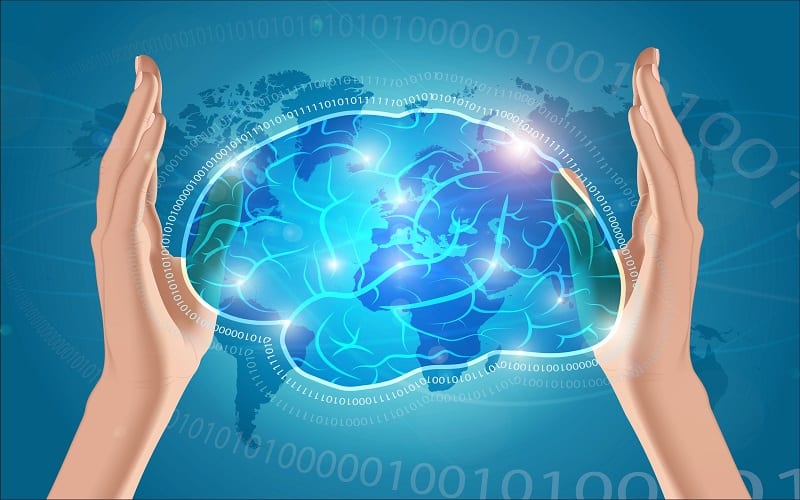As technology leads us towards a smart future, how are different nations approaching the rapidly emerging age of intelligence?
Introduction
Smart technology is on its way to challenging, convincing, and converting the human ecosystem in cyberspace, aquaspace, geospace, and space (CAGS). As smart technology today enables humans in many ways to define and determine our ecosystem beyond CAGS, it is essential to understand and evaluate its impact on nations in the coming tomorrow.
Today, smart technology drives smartphones, smart cars, smart homes, smart grids, smart infrastructure, smart cities, and the like. As a result, the smart ecosystem across CAGS is proliferating. As the smart ecosystem continues to expand, we must consider where smart technology is taking nations and what the smart future will look like for each nation’s ecosystem.
Acknowledging this emerging reality, Risk Group initiated a much-needed discussion on The Smart Future with Dr. James Canton, a leading Global Futurist, Advisor, Keynote Speaker, Entrepreneur, Author of Future Smart, The Extreme Future and TechnoFutures, and Chairman and CEO of the Institute for Global Futures based in the United States on Risk Roundup.
Disclosure: Risk Group LLC is my company
Risk Group discusses “Smart Future” with Dr. James Canton, a leading Global Futurist, Advisor, Keynote Speaker, Entrepreneur, Author of Future Smart, The Extreme Future and TechnoFutures, and Chairman and CEO of the Institute for Global Futures based in the United States.
Smart Fundamentals
The concept of “smart” has many different perspectives and is being used widely to convey many different scenarios. From a nation’s intelligence evolution perspective, there are many ongoing efforts in exploring the possibility of an artificial intelligence-driven smart future that benefits individuals and entities across nations: its government, industries, organizations, and academia (NGIOA). This necessitates that we evaluate the requirements for creating a smart ecosystem across CAGS.
This is being done by developing relevant smart technology and applications and by defining creative convergence strategies that support integrated innovation efforts and ideas that can disrupt the barriers to a smart future by developing shared visions. So, as smart technology will likely continue to blur the lines between cyberspace, aquaspace, geospace, and space and individuals and entities across NGIOA in the coming years, what will the smart future look like for each nation? And where can it take humanity?
While a smart future is an objective that drives most innovators, many requirements need to be followed and realized for any nation to move towards a smart future. That brings us to an important question: is smart future about replacing traditional industries, their products, and services? Or is it about adding an intelligence layer to the traditional industries? And, do nations understand the smart future they are so desperately trying to shape?
Smart Technology
In a broad sense, emerging innovations that take nations towards a smart future are disruptive and transformative. With our smartphones, we are now able to control not only our home remotely (thermostat, lights, garage, sprinkler systems, security systems, and more), but also business, farms, enterprises, cities, and more by integration of different technologies (machine learning, image recognition or computer vision, robotics, voice, other sensors). Individually and collectively, this will create experiences that will help define the smart future for nations in the coming tomorrow.
Creating a smart future that benefits everyone is not an easy task as it requires much more than just advanced technologies. It requires effective convergence strategies, regulatory landscapes, legal frameworks, security frameworks, and change management, along with the cohesive collective wisdom of shared visions and goals. As efforts intensify to develop a smart future, the question remains if it will benefit everyone across nations?
Creating a smart future is about preparing to face future challenges intelligently. The efforts need to begin by focusing on creating innovative ideas to leverage ubiquitous digital connectivity, smart sensors, artificial intelligence, the internet of things (IoT), access to collective knowledge, and entrepreneurship to capture opportunities for a smart future.
Smart Future Preparedness
The smart future needs to be an aspirational goal for all nations. However, to create a smart future, nations must stretch their current goals of short-term survival, think beyond the obvious, and work collectively with all its components for the good of the country. For each country it is essential to evaluate, how will: cognitive computing, computer vision, voice ecosystem, robots, 5G, AI, and big data promote and shape smart behavior and futures in its CAGS ecosystem.
As seen across nations, the smart future is already taking shape in many different forms: from smart robots to smart appliances, lighting controls to power tracking, smart grid to smart energy, smart toilets to smart homes — advances are already coming our way. As a result, the potential for emerging intelligent technologies to enable smart nations is rising. It will be interesting to see what the influence of smart technologies will be on different components of a country, and how will smart systems talk to each other within and across nations’ boundaries. Preparing each element of a nation to meet the transformative challenges of the smart future is, therefore, a central requirement.
What Next?
The advances in technology are enabling nations to create a smart future. As smart technology-driven automation connects nations: systems, infrastructure, people, processes, and more, it is not a matter of if but when these smart systems will be compromised. The potential consequences of a security breach are becoming a great concern. As we move towards a smart future, the time is now to focus on the emerging security risks.
NEVER MISS ANY OF DR. PANDYA’S POSTS
Just join here for a weekly update





 Predicting Hospitalization: Machine Learning Models On The Rise
Predicting Hospitalization: Machine Learning Models On The Rise